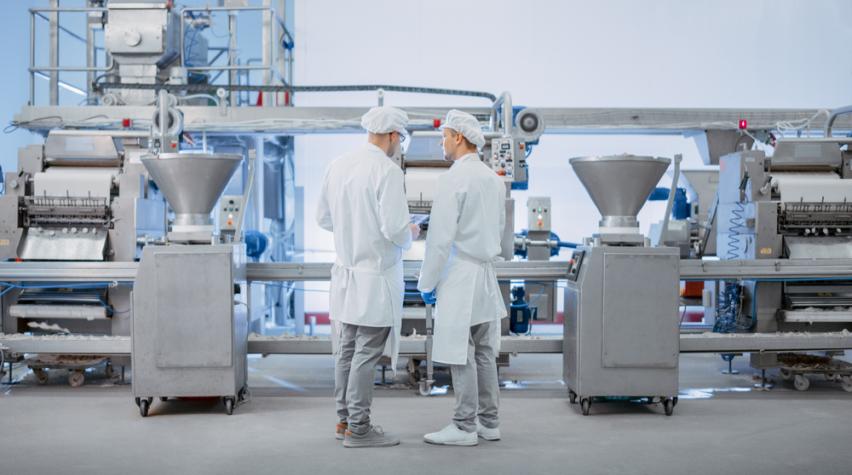
Disclosure: This post is sponsored by Schrödinger and reflects their views, opinions, and insights.
Improving food processing to create healthier, more sustainable and tasty diets is a rapidly developing area that impacts all of our lives. AIChE's 4th Food Innovation and Engineering (FOODIE) Conference will take place virtually from December 6–7 and will feature experts in the food processing field. It covers topics like the formulation process interface, sustainability in the food cycle, and innovative food processing technologies. Register here to learn from and network with the food engineering community.
Schrödinger is one of the leaders working in this space, aiming to help companies improve food through full product formulations, predictive modeling for new product development and more. Prior to the FOODIE Conference, I had a chance to talk with Jeff Sanders at Schrödinger about how using modeling and simulation tools can help to more accurately predict food formulation on a large scale. You can learn more from Jeff during his talk at the conference.
What are some recent developments in food technology that you find particularly interesting?
Naturally sourced ingredients are popping up everywhere, particularly in the foods we consume. Take a walk down your local grocery store aisle, and you will be amazed how product packaging labels are changing to highlight natural ingredients. Trying to retain a product’s original appearance, taste, and shelf life when using a replacement ingredient can be challenging. Food scientists are having to think outside the box to address reformulation of food and beverages. To successfully do this without spending significant time and money requires truly innovative thinking. And I’d be remiss not to mention alternative meat sources. Both established and startup companies are pushing the envelope with next generation plant-based meats. While we are not yet at the point of replacing traditional meat sources on a large scale, I’d expect there to be a significant shift in the next ten years.
FOODIE’s goal is to help create connections and exchange knowledge around emerging technologies for food production. How does this tie into Schrödinger’s mission to improve human health and quality of life by transforming the way therapeutics and materials are discovered?
It’s very hard to talk about improving human health and quality of life without mentioning food. It’s ubiquitous; it impacts our daily lives. In order to meet the worldwide food demands, we need to make foods that are healthier for both us and the environment. In the US, heart disease is the leading cause of death, and most deaths associated with heart disease can be prevented by a healthy diet and exercise. Healthier eating means making new foods that are equally appealing and accessible as less-healthy ones — and we see our ability to help meet this shared goal of identifying new foods or food products as instrumental in the success of this mission. Schrödinger is positioned to provide computational tools to speed up and efficiently develop new foods faster and as new demands emerge.
FOODIE will cover topics like sustainability in the food cycle, food processing improvements, and food safety. Which topics are you most excited to hear about at the conference?
Food processing is certainly of interest to us, given the need for constant refinement and improving efficiency at scale. While modeling has historically been viewed as a tool to discover the next molecule, drug, or polymer, understanding existing ingredients and formulations is equally, if not more important, to food and beverage companies. We have seen several cases where a customer could not explain why a product was not meeting their expectations, and modeling was the only avenue to explore this. Another area of interest is formulation process interface. In the past, formulations were not tractable at the size and length scale that molecular simulation captures. As we push the technology forward, physics-based simulations of full product formulations — not just a few ingredients — are now becoming routine. We also look forward to seeing how others are working to address these issues.
As we look to the future, what technologies will drive the food industry forward, and what is Schrödinger’s role in this advancement?
I think there is no single answer to what will be the driving force of the food industry in two or twenty years. Digitization and machine learning are hot topics today as more companies push to apply these tools to food product development to stay ahead of the curve. Alongside these efforts, data management and interpretation will become an integral part, from development through formulation, to processing and packaging. With our software, Schrödinger can play an integral role in shifting today’s approach from reactive use of modeling (instances where a product is not behaving as expected) to predictive modeling that guides new product development. We envision Schrödinger’s physics-based platform will be leveraged throughout the development process, and especially at early stages to drive innovation.

Jeff Sanders
Jeffrey Sanders is currently a principal scientist in the materials science division focusing on physics-based simulations in consumer packaged goods applications.
Disclosure: This post is sponsored by Schrödinger and reflects their views, opinions, and insights.


